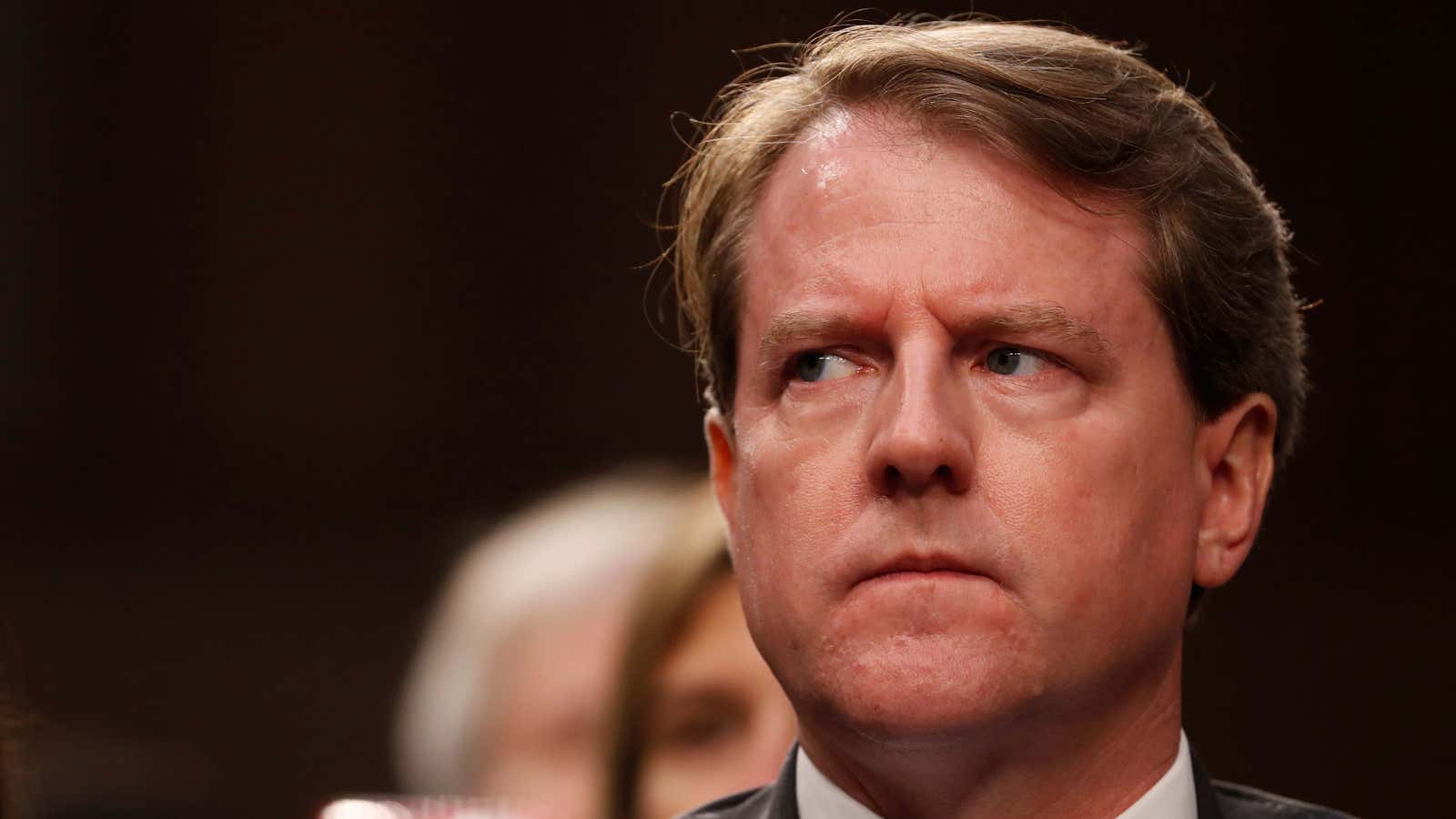Donald Trump has a dubious relationship with the truth, judging by special counsel Robert Mueller’s long-awaited report on alleged ties between the Trump campaign and Russian agents working to swing the 2016 election. The US president lashed out at White House counsel Don McGahn because he wouldn’t mislead the public to bolster a lie that Trump had previously told, according to the findings.
It all started over a New York Times article (paywall) that said Trump had ordered McGahn in 2017 to have the Justice Department fire Mueller because he had “conflicts of interest that disqualified him from overseeing the investigation,” and that Trump dropped the issue after McGahn threatened to quit rather than comply.
When reporters later asked Trump about the article, he responded, “Fake news, folks. Fake news. A typical New York Times fake story.”
The following day, Trump’s personal lawyer—presumably Jay Sekulow—called McGahn’s attorney and said the president wanted McGahn to release a statement disputing the Times reporting (and by that point similar reporting by the Washington Post, which had confirmed the Times story). McGahn refused, maintaining that the Times “was accurate in reporting that the President wanted the Special Counsel removed,” the Mueller report reveals.
Trump then asked White House communications director Sarah Huckabee Sanders to contact McGahn and pressure him to issue a statement saying the article was inaccurate, according to the report. McGahn again declined to “correct” the record.
A week later, former White House chief of staff Reince Priebus appeared on Meet the Press and said he never heard Trump talk about firing Mueller. Trump then called Priebus and told him he did a great job in the interview, and insisted that he had “never said any of those things about” the special counsel.
But Trump couldn’t let it go. The day after Priebus’s TV appearance, the Mueller report says, Trump “complained about the Times article” to Rob Porter, the disgraced former White House aide accused of beating his two ex-wives. Trump described the article as “bullshit,” and again claimed he never wanted Mueller fired, saying that McGahn in fact leaked the information to the media to “make himself look good,” the report explains.
When Porter told Trump to let the White House communications office take care of it, Trump responded that he wanted McGahn to write a letter “for our records” saying that the Times reporting was incorrect. Trump then “referred to McGahn as a ‘lying bastard,’” saying that if he didn’t write the letter, then “maybe I’ll have to get rid of him.”
A day later, Trump met with McGahn and White House chief of staff John Kelly in the Oval Office to further discuss the Times article, and again ordered McGahn to lie for him.
“I never said to fire Mueller,” Trump said, according to McGahn’s account of the meeting included in the Mueller report. “I never said ‘fire.’ This story doesn’t look good. You need to correct this. You’re the White House counsel.”
McGahn responded that the part of the article in question was in fact accurate.
“Did I say the word ‘fire’?” Trump asked.
“What you said is, ‘Call Rod [Rosenstein], tell Rod that Mueller has conflicts and can’t be the special counsel,'” McGahn replied.
“I never said that,” insisted Trump, who then asked McGahn if he would “do a correction.”
McGahn once again declined to lie for the president.
According to the report, Trump asked McGahn why he told Mueller’s investigators about wanting the special counsel fired. McGahn said he was required to, and that conversation between himself and the president wasn’t protected by attorney-client privilege.
“What about these notes?” Trump demanded. “Why do you take notes? Lawyers don’t take notes. I never had a lawyer who took notes.”
McGahn said he takes notes because he is a “real lawyer” and that’s what lawyers do, to which Trump replied, “I’ve had a lot of great lawyers, like Roy Cohn. He did not take notes.”
